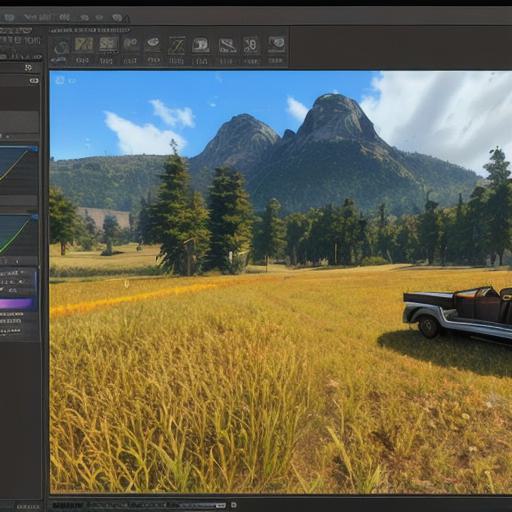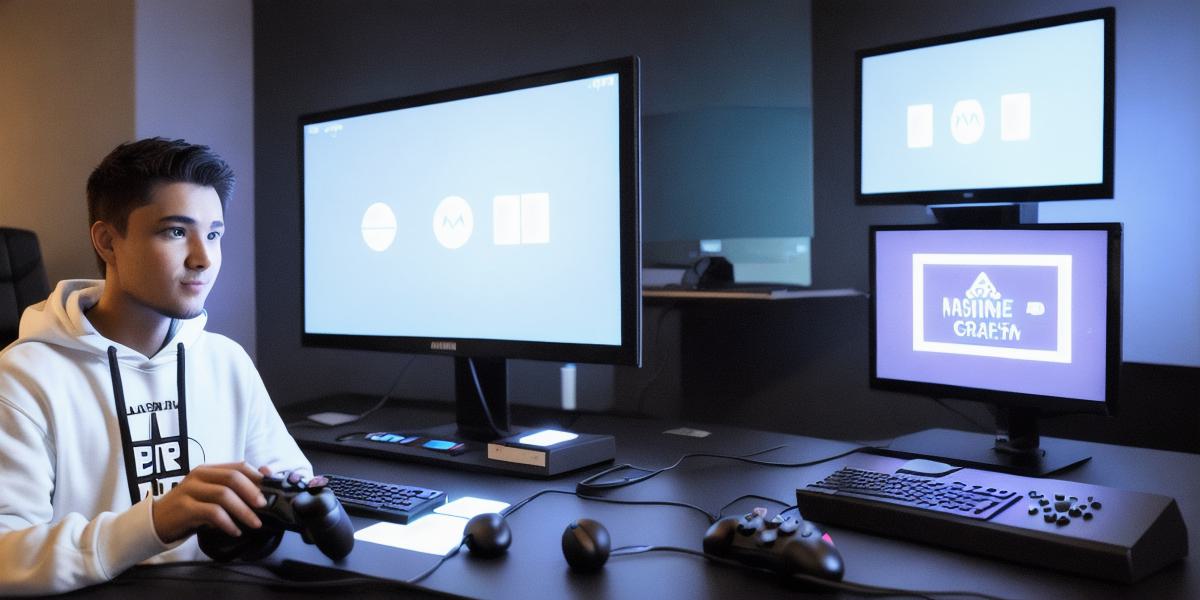Are you a developer looking for a new challenge? Are you passionate about games, but don’t know where to start? Look no further! In this article, we will explore the exciting world of game development, provide practical tips on how to learn and start creating your own games, and help you optimize your work for maximum impact.
Introduction
Game development is a rapidly growing industry that offers endless opportunities for creativity, innovation, and fun. From casual mobile games to complex virtual reality experiences, there are countless ways to engage with players and create unforgettable gaming experiences. But where do you start? What skills do you need? And how can you make the most of your time and resources as a developer?
The Skills You Need
Before diving into game development, it’s important to understand what skills are in demand. While there is no one-size-fits-all answer, here are some common skills that developers need:
- Programming: This includes knowledge of programming languages such as C++, Java, and Python, as well as experience with game engines like Unity or Unreal Engine.
- Art and design: Developers need to have a strong understanding of art and design principles, including color theory, composition, and user interface design.
- Animation: This involves creating animations for characters, objects, and environments, using tools such as Blender or Maya.
- Sound design: Creating sound effects, music, and other audio elements is crucial to creating an immersive and engaging game experience.
- Marketing and promotion: Developers need to be able to market their games effectively in order to attract players and generate buzz.
How to Learn Game Development
Now that you know what skills are needed, let’s explore how you can learn game development. Here are some steps you can take:
- Take an online course: Online courses offer a flexible and convenient way to learn game development. Platforms like Udemy, Coursera, and LinkedIn Learning offer courses on a variety of game development topics, from programming to art and design.
- Join a community: Joining a community of fellow game developers can provide valuable support, advice, and inspiration. There are many online communities and forums where you can connect with other developers, ask questions, and share your work.
- Attend conferences and meetups: Conferences and meetups offer opportunities to network with other developers, learn from experts in the field, and stay up-to-date on the latest trends and technologies in game development.
- Create your own projects: One of the best ways to learn game development is by creating your own projects. Start small and work your way up, building on your skills and gaining experience as you go.
- Get feedback: Getting feedback from others can help you improve your work and identify areas for improvement. Consider sharing your projects with other developers, friends, or family members to get their thoughts and suggestions.
Starting Your Own Game Development Project
Now that you have the skills and knowledge you need, let’s explore how you can start creating your own game development project. Here are some steps you can take:
- Choose a topic: The first step is to choose a topic for your game. Consider what you’re passionate about and what kind of gaming experience you want to create.
- Plan your game: Once you have a topic in mind, it’s time to start planning your game. Create a rough outline of the game’s structure, including levels, characters, and objectives.

- Design the user interface: Designing the user interface (UI) is an important part of game development. Consider what elements you want to include in the UI, such as menus, buttons, and controls.
- Create your game assets: This includes creating artwork, animations, sound effects, and other assets that will be used in your game. Use tools like Blender or Photoshop to create these assets.
- Program your game: Programming is the heart of any game. Use a programming language like C++ or Java to write the code for your game. Consider using game engines like Unity or Unreal Engine to simplify the process.
- Test and refine: Once you have created your game, it’s important to test it thoroughly and make adjustments as needed. Get feedback from other developers, friends, and family members to identify areas for improvement.
Examples of Successful Game Development Projects
Now that we’ve explored how to learn and start creating your own game development project, let’s take a look at some examples of successful game development projects:
- PewDiePie vs. PewDiePie: This popular game was created by YouTube influencer PewDiePie and raised over $2 million for charity through player donations. The game was a simple platformer that allowed players to control PewDiePie’s character as he navigated various obstacles.
- Journey: This emotional and visually stunning game tells the story of a young boy named Red who embarks on a journey to reunite with his mother. The game features breathtaking artwork, intuitive controls, and a compelling narrative that resonates with players of all ages.
- Minecraft: This sandbox game allows players to create and explore their own virtual worlds. With a vast array of tools and resources at their disposal, players can build anything from simple houses to complex cities and civilizations.
- Fortnite: This popular battle royale game has taken the world by storm, with millions of players competing in daily matches. The game features fast-paced gameplay, colorful graphics, and a wide variety of weapons and characters to choose from.
Conclusion
Game development is a rewarding and exciting field that offers endless opportunities for creativity, innovation, and fun. With the right skills, knowledge, and resources, anyone can learn game development and start creating their own games. Remember to take it one step at a time, get feedback from others, and never stop learning and improving. Who knows what kind of gaming experience you might create next?
FAQs
- What programming languages are used in game development?
- Common programming languages used in game development include C++, Java, Python, and HTML5/JavaScript.
- What tools do I need to create a game?
- Tools needed for game creation can vary depending on the type of game you’re creating. However, some common tools include game engines like Unity or Unreal Engine, 3D modeling software like Blender or Maya, and sound editing software like Audacity or Ableton Live.
- Can I learn game development on my own?
- Yes, it is possible to learn game development on your own through online courses, tutorials, and practice projects. However, joining a community of fellow developers can also provide valuable support and feedback.
